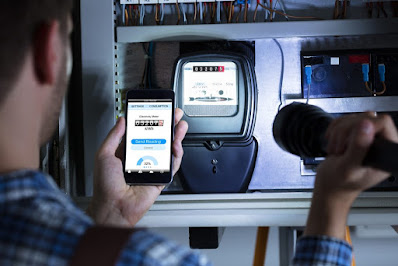DOMESTIC HOT WATER ANALYSIS CHECKLIST: A COMPREHENSIVE APPROACH FOR COMMERCIAL BUILDINGS
The domestic hot water system is one of the most important and frequently-used appliances in any commercial building. Although this system might be out of sight, that doesn’t mean it should be out of mind. If you want to enhance your building’s domestic hot water system and keep it properly maintained, our team of HVAC techs at Tri-Tech Energy in NJ has put together this checklist to help you.
Identifying Building Type and Location
The type and location of your building will determine what type of domestic hot water system you can use. For example, geothermal heat pumps require space to dig underground and lay a network of pipes, meaning if you don’t have space to do this then this system won’t work for you. Many commercial buildings already have the infrastructure for domestic hot water systems, and it’s simply a matter of upgrading your existing equipment to something more sustainable and energy-efficient. An HVAC technician can inspect your building, as well as analyze its location, and make the best recommendations for you.
Understanding Applicable Building Codes
There are national, state, and local building codes you must follow when installing a domestic hot water system. Building codes address issues like sanitation, hot water safety, and regulations around where equipment is housed. Building codes are legally enforceable and abiding by them isn’t optional, it’s mandatory. If you’re found not to be in compliance with applicable building codes you can be issued fines until the problem is corrected, and that can put a significant dent in your operations. All HVAC technicians must stay up-to-date on national, state, and local building codes to ensure their clients are in compliance.
Addressing Owner’s Specific Requirements
Each building owner will have their own specific requirements for their domestic hot water system. It’s the HVAC technician’s responsibility to discuss all expectations and requirements with the building owner before installing or repairing a domestic hot water system. Some owners might not be aware of what’s possible and what’s not, so managing expectations and giving clear information is essential.
Determining System Redundancy
Commercial water systems use designs that help ensure uninterrupted operations. Even the smallest disruption lasting half of a second can be enough to shut the system down, allowing contaminants to enter the water and affecting the whole building’s water supply! One way to override the system shutting down is to include redundant systems, which activate and take over when the main water system turns off. System redundancy can be integrated into the communications network, the electrical distribution system, or the automation system, and all elements of a hot water system must be thoroughly analyzed before deciding how best to integrate a redundancy system.
Analyzing Plumbing Fixture Usage and Future Expansion Plans
The existing plumbing fixtures need to be analyzed to ensure they’re capable of handling the waterflow, especially if there are plans to expand in the future. Sometimes commercial building owners expand their business without taking into account the capacity of their electrical system, their plumbing system, and their HVAC system, only to find that they need upgrades or additions that tip the budget. HVAC technicians should inspect all of the plumbing fixtures and discuss future expansion plans with the property owner to ensure the existing plumbing system is fit for purpose.
Domestic hot water systems in commercial buildings must be able to withstand constant use and occasional strain. Regular inspection, analysis, and maintenance is highly recommended in order to keep the hot water system operating efficiently, and to maximize its life while ensuring optimal performance.
For more information about how to enhance your commercial building’s domestic hot water system, please contact our team at Tri-Tech Energy today.
Originally published at: https://www.tritechenergy.com/blog/domestic-hot-water-analysis-checklist/

Comments
Post a Comment